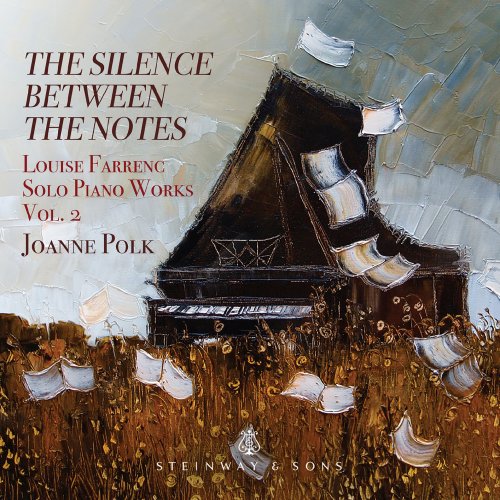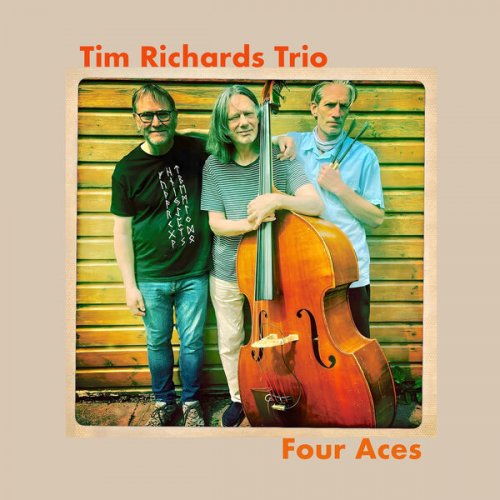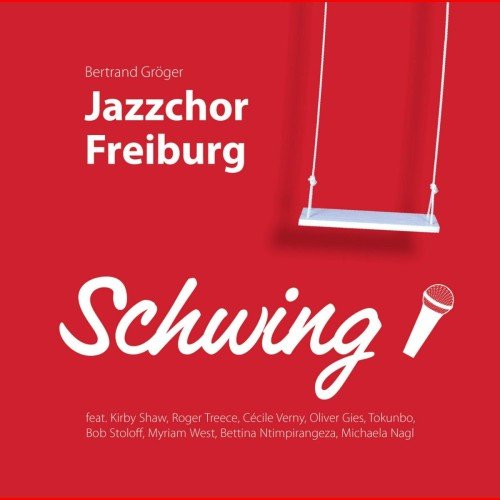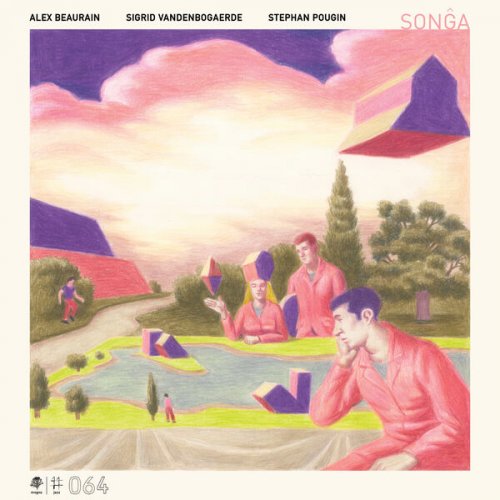Joanne Polk - Farrenc: Solo Piano Works, Vol. 2 - The Silence Between the Notes (2023) [Hi-Res]

Artist: Joanne Polk
Title: Farrenc: Solo Piano Works, Vol. 2 - The Silence Between the Notes
Year Of Release: 2023
Label: Steinway and Sons
Genre: Classical Piano
Quality: flac lossless (tracks) / flac 24bits - 96.0kHz +Booklet
Total Time: 01:09:08
Total Size: 325 mb / 1.05 gb
WebSite: Album Preview
TracklistTitle: Farrenc: Solo Piano Works, Vol. 2 - The Silence Between the Notes
Year Of Release: 2023
Label: Steinway and Sons
Genre: Classical Piano
Quality: flac lossless (tracks) / flac 24bits - 96.0kHz +Booklet
Total Time: 01:09:08
Total Size: 325 mb / 1.05 gb
WebSite: Album Preview
01. Mélodie in a-Flat Major
02. 12 Études de dextérité, Op. 41: No. 1, Allegro con fuoco
03. 12 Études de dextérité, Op. 41: No. 2, Allegro moderato
04. 12 Études de dextérité, Op. 41: No. 3, Allegro
05. 12 Études de dextérité, Op. 41: No. 4, Allegretto
06. 12 Études de dextérité, Op. 41: No. 5, Andante con moto
07. 12 Études de dextérité, Op. 41: No. 6, Allegro maestoso
08. 12 Études de dextérité, Op. 41: No. 7, Andante espressivo
09. 12 Études de dextérité, Op. 41: No. 8, Allegro
10. 12 Études de dextérité, Op. 41: No. 9, Vivace
11. 12 Études de dextérité, Op. 41: No. 10, Vivace
12. 12 Études de dextérité, Op. 41: No. 11, Allegro
13. 12 Études de dextérité, Op. 41: No. 12, Moderato
14. 30 Études, Op. 26: No. 2, Moderato
15. 30 Études, Op. 26: No. 7, Andante espressivo
16. 30 Études, Op. 26: No. 8, Andantino
17. 30 Études, Op. 26: No. 13, Moderato
18. 30 Études, Op. 26: No. 16, Andante grazioso
19. 30 Études, Op. 26: No. 19, Presto
20. 30 Études, Op. 26: No. 20, Allegretto
21. 30 Études, Op. 26: No. 23, Fuga
22. 30 Études, Op. 26: No. 26, Moderato
23. 30 Études, Op. 26: No. 27, Allegro agitato
24. 30 Études, Op. 26: No. 28, Allegro spiritoso
25. 30 Études, Op. 26: No. 30, Allegro
26. Les italiennes, Op. 14: No. 2, Cavatine de Bellini's "La straniera"
27. Les italiennes, Op. 14: No. 3, Cavatine de Carafa's "Bérénice"
On September 1, 2023, Steinway & Sons releases The Silence Between the Notes - Louise Farrenc: Solo Piano Works, Vol. 2 (STNS 30223) from pianist Joanne Polk. The album is a compliment to Polk's acclaimed 2020 release, Louise Farrenc: Etudes & Variations for Solo Piano (STNS 30133).
As the first female professor of piano at the Paris Conservatory in 1842, Farrenc broke the long-standing barrier of gender discrimination at the Conservatory, and as a published composer of music for solo piano, chamber ensembles, and orchestra she was able to establish the legitimacy of music by women in the face of accepted theories of their inferiority as creative artists. Like the handful of her female colleagues who became published composers (Fanny Mendelssohn and Clara Schumann in particular), Farrenc studied composition privately with some of the same teachers who instructed her famous male counterparts at the Paris Conservatory. And her success as a published composer had to do in part with the fact that her husband, Jacques Farrenc, was a leading Parisian music publisher who was not afraid to promote his wife’s music through publication. Regrettably, it often took familial connections of this sort to allow women in the 19th century to succeed as composers and to destroy the common prejudices against female composers of that era.
This new recording includes twelve more of the 30 Etudes that formed a large part of Joanne Polk’s first volume of the piano music of Louise Farrenc. These are, like the etudes of Liszt and Chopin, large-scale concert works that also serve to develop different specific pianistic techniques. Further expanding the recording of Farrenc’s etudes is the inclusion here of her 12 Études brillantes, written in the same virtuoso style as her 30 Etudes.
Also recorded on this album are two more examples of Farrenc’s operatic fantasies: one based on an aria from Bellini’s opera La straniera, and the other from Carafa’s opera Berenice. Both of these piano works are part of the familiar 19th-century tradition of composing transcriptions of tunes from popular operas that were currently in production at the Paris Opéra. These transcriptions were part of a collection that Farrenc published under the title Les Italiennes.
Opening the present recording is a short, lyrical piece titled simply Mélodie, an example of the popular 19th-century genre known as “songs without words.” This poetic gem speaks volumes to the depth and profundity of Farrenc’s ability to touch our souls, and to hear the silence between the notes.
![Tomasz Stańko - Zamek mgieł (Polish Radio Sessions vol. 3/6) (2025) [Hi-Res] Tomasz Stańko - Zamek mgieł (Polish Radio Sessions vol. 3/6) (2025) [Hi-Res]](https://www.dibpic.com/uploads/posts/2025-12/1765795906_cover.jpg)







![Travis Jenkins Piano Trio - Jazz in Meanjin 020 (Live at JMI) (2025) [Hi-Res] Travis Jenkins Piano Trio - Jazz in Meanjin 020 (Live at JMI) (2025) [Hi-Res]](https://www.dibpic.com/uploads/posts/2025-12/1765862611_a2068783921_10.jpg)